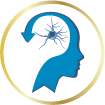Integration of Artificial Intelligence in Neuropsychopedagogy
The integration of Artificial Intelligence (AI) in Neuropsychopedagogy is a relatively new concept that has become increasingly relevant in recent years. Neuropsychopedagogy is an interdisciplinary field of study that focuses on understanding the brain-behavior relationship and its implications for educational practice. AI is a technology that can be used to develop systems that can interact with humans in a natural and intuitive way. This has the potential to revolutionize the way in which Neuropsychopedagogy is practiced and the way in which educational interventions are designed and implemented.
What is Neuropsychopedagogy?
Neuropsychopedagogy is a relatively new field of study that focuses on understanding the brain-behavior relationship and its implications for educational practice. It combines neuroscience, psychology, and pedagogy to provide a comprehensive understanding of the brain and its functions, as well as the effects of various educational interventions on student learning and development. Neuropsychopedagogy is used to understand how the brain works, and how different educational interventions can be used to improve learning outcomes. The field is also used to develop and implement effective educational interventions that are tailored to the individual needs of each student.
How AI Can Help Neuropsychopedagogy
AI has the potential to revolutionize the way in which Neuropsychopedagogy is practiced. AI-based systems can be used to develop and implement educational interventions that are tailored to the individual needs of each student. AI-based systems can also be used to analyze large amounts of data to identify patterns and trends that can be used to inform educational interventions. AI-based systems can also be used to provide personalized feedback to students, which can help them better understand their own learning process and progress.
Applications of AI in Neuropsychopedagogy
AI can be used to develop and implement educational interventions that are tailored to the individual needs of each student. AI-based systems can also be used to analyze large amounts of data to identify patterns and trends that can be used to inform educational interventions. AI-based systems can also be used to provide personalized feedback to students, which can help them better understand their own learning process and progress. Additionally, AI can be used to create virtual environments that can be used to simulate real-world scenarios and provide students with a safe and immersive learning experience.
Benefits of AI in Neuropsychopedagogy
- Personalized Learning: AI-based systems can be used to provide personalized feedback to students, which can help them better understand their own learning process and progress.
- Data Analysis: AI-based systems can also be used to analyze large amounts of data to identify patterns and trends that can be used to inform educational interventions.
- Simulation: AI can be used to create virtual environments that can be used to simulate real-world scenarios and provide students with a safe and immersive learning experience.
- Improved Outcomes: AI-based systems can be used to develop and implement educational interventions that are tailored to the individual needs of each student, which can lead to improved learning outcomes.
Conclusion
The integration of Artificial Intelligence (AI) in Neuropsychopedagogy is a relatively new concept that has become increasingly relevant in recent years. AI has the potential to revolutionize the way in which Neuropsychopedagogy is practiced and the way in which educational interventions are designed and implemented. AI-based systems can be used to provide personalized feedback to students, analyze large amounts of data, and create virtual environments for students to learn in. The use of AI in Neuropsychopedagogy has the potential to lead to improved learning outcomes for students.












Leave a comment